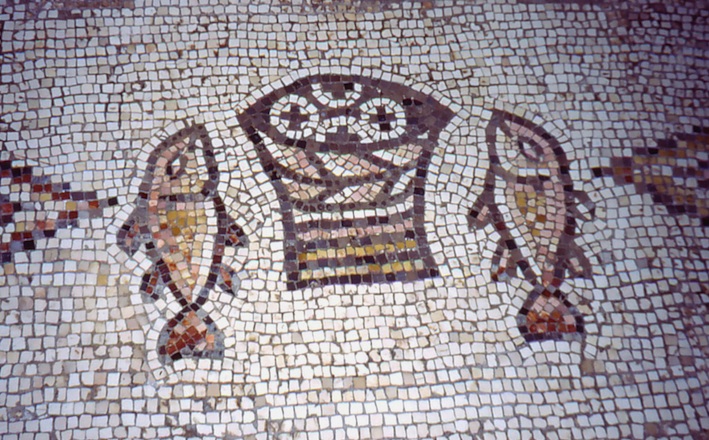Commentary on Isaiah 55:1-5
The distance between the writer of Isaiah 55 rooted in the agrarian world and the trauma of the fall of Jerusalem and the 21st-century urban/suburban post-industrial North American reader is immense.
The default reading labels the passage as eschatological utopianism that has nothing to do with our present reality.
When one reads the message of Isaiah from the perspective of a North American context, one misses the brutal historical realities of Israel and Judah. The shadow of imperial power dominates their history. The agrarian life was a challenge in the climate of low rainfall, significant heat, damaging cold, and mediocre soils.
Literary structure
The brevity of the passage allows a detailed literary and structural analysis. The preacher must determine whether to cover the literary movement of the passage or to take one or more literary elements.
This small passage has an intricate structure of three sections:
- Call to God’s economy (verse 1)
- Test of faith (verses 2-3)
- Call and function (verses 4-5)
Call to God’s economy: section 1 (verse 1)
The first section begins with an interjection followed by a compelling list of imperatives. Think about how interjections and imperatives communicate in general to help the congregation encounter this passage.
Call to attention. The Hebrew term hoy occurs 49 times. Once in 1 Kings 13:30 and the others in the prophetic books, with the most occurrences in Isaiah. You could focus on the origin of the term.
First Addressee. All who thirst. The power of “all” frames the interpretation of the passage. Does the “all” refer to all of us who thirst or all humans who thirst or all that includes us and beyond? Here, the writer has moved to an international view based on the exilic experience. The broader inclusion makes sense based on a similar reference in Isaiah 56:3.
First imperative. Come to the waters. This chapter contains twelve imperatives. The phrase “to the waters” occurs in Amos 8:11: “‘Behold the days are coming,’ says the Lord God, ‘when I will send a famine on the land; not a famine of bread, nor a thirst of water, but of hearing the words of the LORD’” (RSV). However, in Isaiah the waters function as the location of solution.
Second addressee. Those without silver. Today in most of the world, people live in money economies. In agrarian tradition society types, most exchanges are a barter of goods. The rise of coins happened as late as the fifth century BCE. The movement from the Babylonian and Persian empires increased the move to a money economy as an expression of imperial economics. The addressee, those without silver, would have been a large population. Peasants would have no silver.
Imperative chain. The passage contains twelve imperatives/commands in Isaiah 55. Prime among them is: “Come … come” buy and eat. The divine imperative sets a tone for the entire passage.
Conditions and objects of exchange. There is parallelism of silver and price. The negative economy is based on silver and price, but the new economy moves differently. The combination of milk and wine is interesting. Do these indicate luxury or staples? Later in the book of Isaiah, the writer will again present another metaphor of economy where those who build the houses will live in them (Isaiah 65:21).
Test of faith: section 2 (verses 2-3)
The imperatives of the first section set up a group of questions in the second section.
Interrogative and indictment. The “why” connects with the rhetorical parallel questions that stand as an indictment. The verb translated as “spend money” comes from the verb form of the noun shekel. Paying money for what is not bread strikes the author as a wasteful use of silver, of money. The parallel second line supports the sense of futility as it describes the labor. The term for “labor” occurs seventeen times in the book of Isaiah. The most helpful parallel is Isaiah 45:14, which uses the same term to describe wealth. However, wealth and labor prove as ineffectual as the non-bread of the previous line. Wealth and labor fail to provide satisfaction.
Call to attention. This section contains a double imperative call to hear. The same phrase occurs five times, three in the book of Job (Job 13:17; 21:2; 37:2), twice in Isaiah 6:9, and here in 55:2.
Section 2 ends with a reference to God’s authentic loyalty to David. This is the only reference to David in Deutero-Isaiah. David does occur in early chapters of the book of Isaiah (7:2, 13; 9:6; 16:5; 22:9, 22; 29:1; 37:35; 38:5). The same expression appears in 2 Chronicles 6:42. The role of David begins with his call in 1 Samuel 16. The covenant with David is found in 2 Samuel 7. David, like the servant, demonstrates a democratization of the political ideal. The writer uses David as a metaphor for the people of God, Yehud. The writer of Isaiah also describes the suffering servant as a metaphor for the believing community (Isaiah 42:6b; 49:6; 52:10; 60:3). Early Christianity will connect David with Jesus (John 8:12).
The call and its function: section 3 (verses 4-5)
The first two sections present such a compelling picture that a reader might focus on human redemption. However, that misses the concluding formula. The divine speech that begins in verse 1 continues. The interjection “behold” introduces verse 4 as a first-person divine speech. God put David as a witness. A triad of titles related to David occurs: leader/witness, prince/storyteller, and commander of the people. The writer uses two words to describe people groups. The term “people” occurs 31 times, many in the book of Isaiah (Isaiah 17:12, 13; 34:1; 41:1; 43:4, 9; 49:1; 51:4; 55:4). Another term “nation” (goy) often connotes nations beyond the Israelite and Judean Jewish nations.
The language “because of” makes clear that the redemption of the believing community and even the broader world is not for the sake of those communities but for the recognition of the Divine actor.
The passage breaks with an interjection and imperatives rooted in God’s economy. Moving from the exile through early Christianity and reaching across to the present provides a different voice to the conventional wisdom about economy.


August 2, 2020